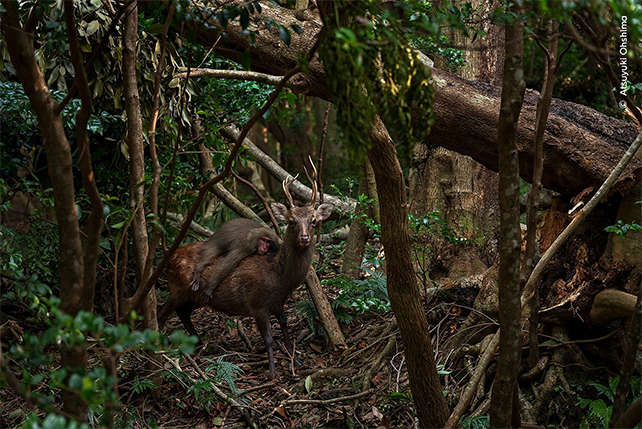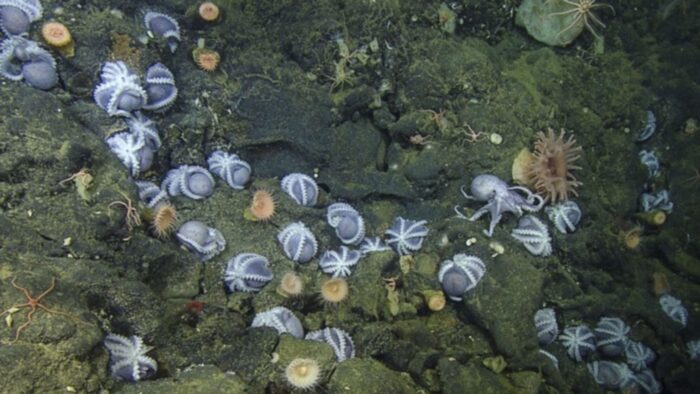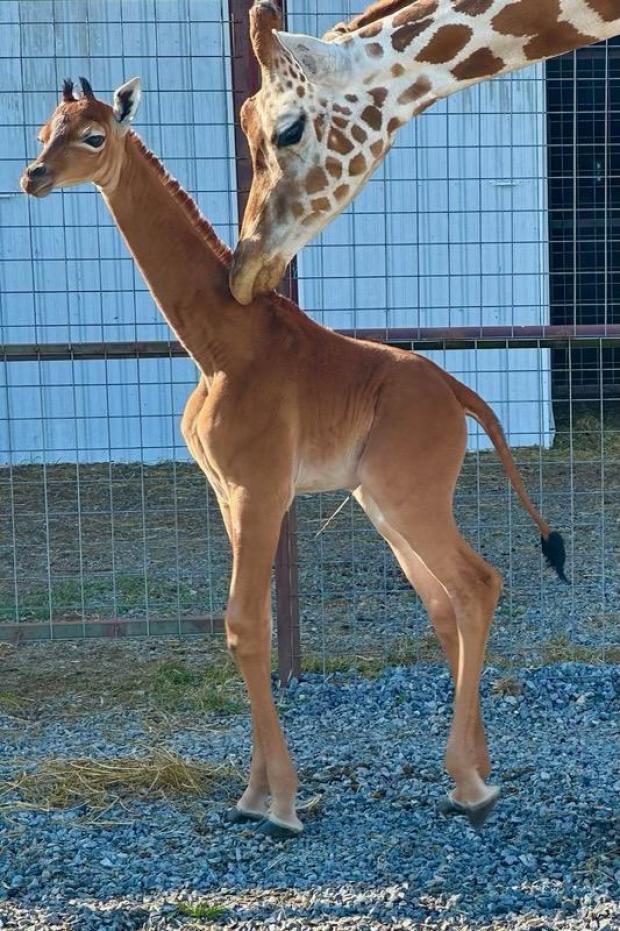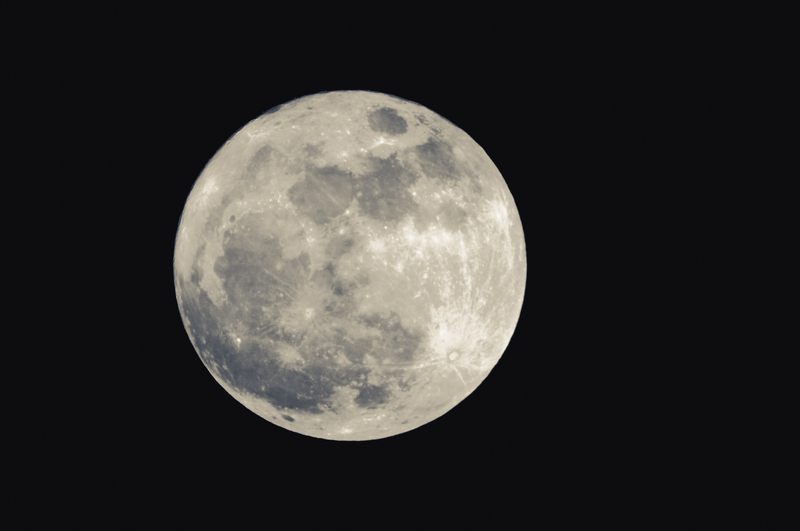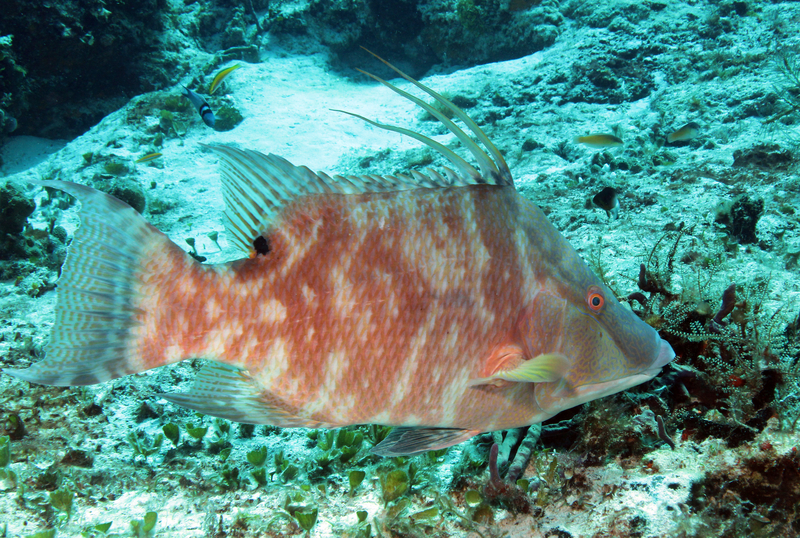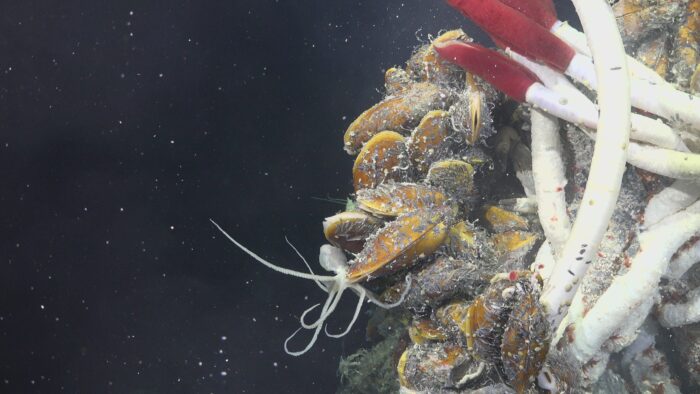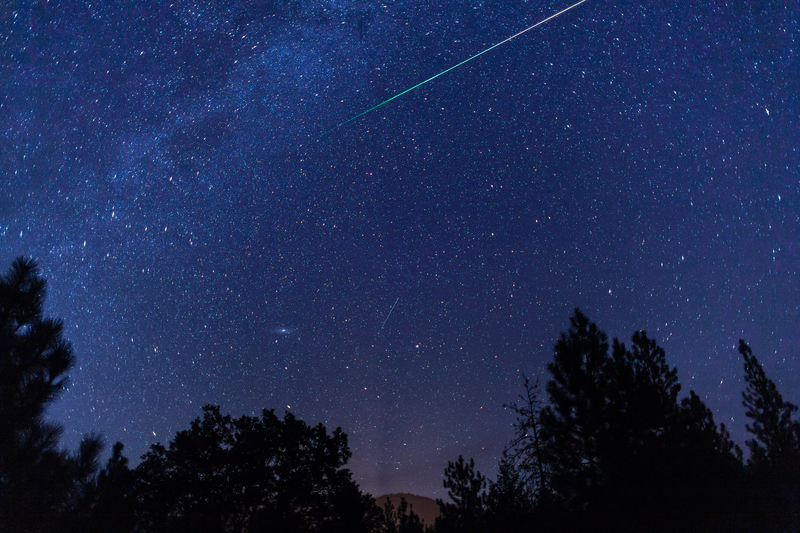Earlier this year, news reports came out that so-called 'murder hornets' had somehow arrived in North America from Asia. These vicious insects—around 35 mm (1.4 inches) long—are nasty enough for humans to deal with. But they're absolutely deadly for bees because these hornets feed on them and other insects.
Over three times the size of honeybees, murder hornets and their other giant hornet relatives are capable of killing an entire hive's worth of bees in minutes. It's a terrifying scene, though bees do have some defences. For example, in some cases, they are able to fully surround and overwhelm a single attacker, using their combined body heat to basically bake and kill the hornet.
But now scientists have discovered another type of defence that is truly next level gross. The bees place animal poop around their hive!
Poop means Stay Away!
As this dead Asian hornet shows, these insects are exceptionally large. (Getty Embed)
A study led by the Department of Biological Sciences at Wellesley College in Massachusetts of Asian honeybess in Vietnam has shown that the bees gather animal feces (poop) as a hornet deterrent. They collect the waste from nearby chicken coops and dung piles, then place it around the hives in little bundles. The task is perform by dozens of bees, all working together.
If it sounds unappealing, it is—particularly for the giant hornets. Normally, hornet scouts locate beehives and mark the area with a scent. Then a group of hornets return to the location to attack the bees. But the study revealed that hives marked with poop receive fewer unwanted visitors.
On one hand, it seems obvious—not many of us would visit a home surrounded by poop! But in this case, scientists are still not sure exactly why the technique stops the hornets from invading. Does the scent of the animal waste mess up the hornet's own scent marking, meaning their crew can't locate the hive? Do the hornets just find the overall scent repulsive and stay away? And how did the bees even figure out this defence in the first place? (Hmm... the 'Keep Out!' sign didn't work. Let's try poop!)
"We have a lot of ideas still to explore," lead researcher Heather Mattila told LiveScience."It's a pretty big open question at this point." We're excited to find out what she and her team discover. And also grateful that it's them researching poop and giant hornets, and not us!
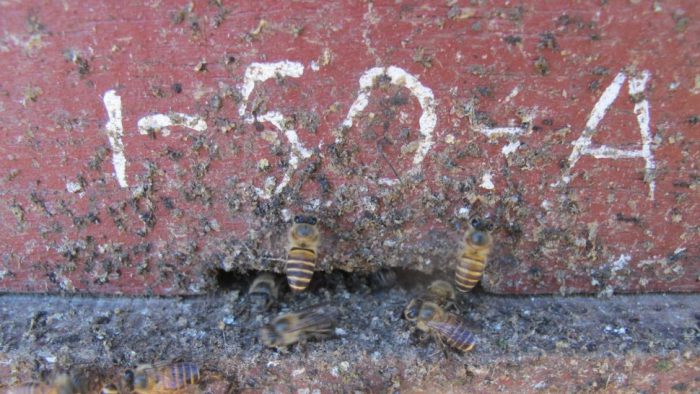 Bees have been observed dotting the entrances of their hives with animal poop. (Heather Mattila/Wellesley College)
Bees have been observed dotting the entrances of their hives with animal poop. (Heather Mattila/Wellesley College)
